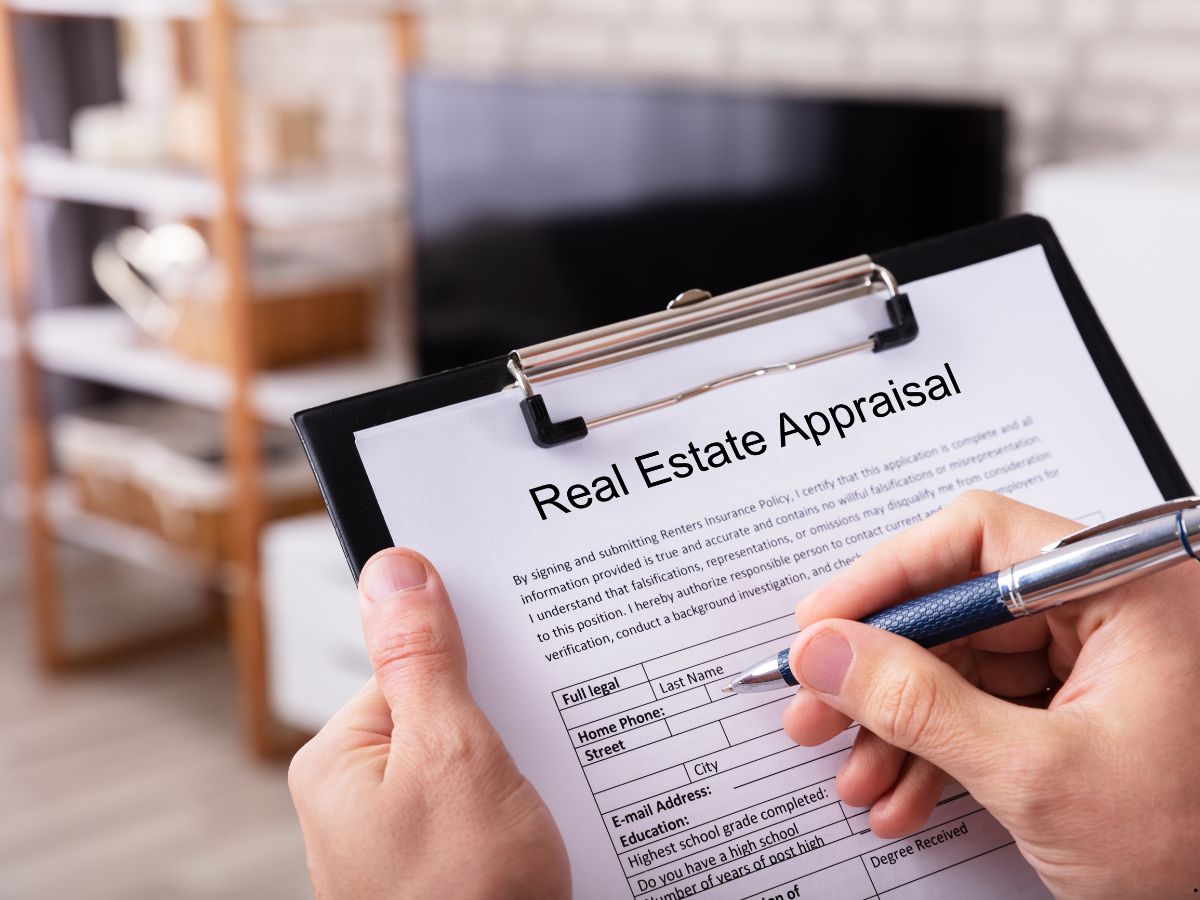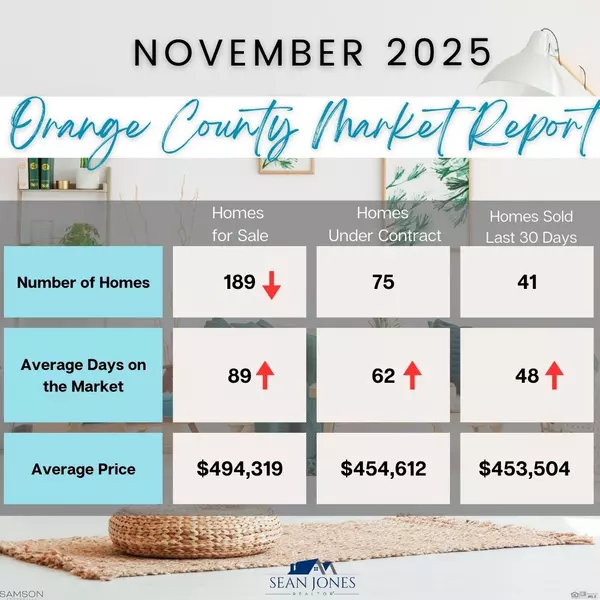What Is a Home Appraisal? Guide for Buyers, Sellers & Land Buyers

What You Need to Know About a Home Appraisal When Buying or Selling a Home
If you're planning to buy or sell a home—or even land—you’ll likely encounter something called a home appraisal. This key step in the real estate process can feel mysterious or even stressful if you’re not sure what it means. But understanding what a home appraisal is, why it matters, and how it works can help you avoid surprises and make smarter decisions as you move toward closing day.
Whether you're a first-time home buyer, a home seller preparing to list, or someone buying land and building later, this guide will walk you through everything you need to know about home appraisals.

What Is a Home Appraisal?
A home appraisal is a professional estimate of a property’s market value, usually ordered by the buyer's lender. Before the bank issues a loan, it wants to make sure the home is worth at least as much as the buyer has offered. The appraisal provides the lender with confirmation that the property is a good investment.
Think of it as a financial checkpoint that protects both the buyer and the lender from overpaying for a home or land. It’s one of the final hurdles before closing and can directly impact whether the transaction moves forward as planned.
Who Conducts the Home Appraisal?
Appraisals are completed by licensed, independent appraisers. These professionals are not connected to either the buyer or the seller. They are neutral third parties hired by the buyer's lender to provide an unbiased opinion of value.
To determine the home’s worth, the appraiser looks at:
-
The home's size, age, and condition
-
The number of bedrooms and bathrooms
-
Lot size and location
-
Recent updates or renovations
-
Comparable sales (“comps”) in the area
-
Safety issues or deferred maintenance
➡️ Appraisers also follow guidelines that vary depending on the loan type. For example, VA loans and FHA loans have stricter property condition requirements, which can affect the appraisal outcome.
When Does a Home Appraisal Happen—and Who Pays?
Once the buyer and seller are under contract, the lender will schedule the appraisal—typically within the first 7–10 days after ratification. The buyer usually pays for the appraisal as part of their closing costs. The cost typically ranges from $400 to $700, depending on property size and location.
After the appraiser visits the property and gathers necessary details, it generally takes one to two weeks to receive the full report. VA loans are more specific and are allowed 10 business days. This timeline can impact the closing schedule, so it’s helpful for both parties to plan accordingly.
Why Is a Home Appraisal So Important?
Appraisals serve multiple purposes in a real estate transaction:
For Buyers:
It ensures you're not paying more than a home is worth and protects you from entering into a bad financial deal.
For Lenders:
It confirms the collateral (the home or land) is worth the loan amount, which minimizes risk for the bank.
For Sellers:
It helps validate the home’s list price and plays a critical role in whether or not the buyer’s financing will go through.
➡️ Without a satisfactory appraisal, a lender will not fund the mortgage—which can cause the entire deal to fall apart.
What Happens if the Home Appraises at or Above the Sale Price?
This is the ideal scenario.
If the appraisal comes in equal to or higher than the purchase price, the lender is satisfied. The buyer moves forward with financing, and the sale proceeds toward closing. In fact, if the home appraises for more than the contract price, the buyer essentially gains instant equity.
For sellers, this means the appraisal contingency in the contract has been satisfied and we are one step closer to settlement.
What Happens if the Home Appraises Below the Sale Price?
This is where things can get complicated.
If the appraised value is lower than the agreed-upon purchase price, the lender will not approve the full loan amount. At that point, buyers and sellers must come to a resolution. Several options may be on the table:
-
Renegotiate the purchase price to match the appraised value.
-
The buyer brings the difference in cash—paying more out of pocket beyond their down payment.
-
Split the difference between buyer and seller (a common compromise).
-
Dispute the appraisal, if there are inaccuracies or missing comps.
-
Cancel the contract, if no agreement is reached and the financing falls through.
➡️ An experienced REALTOR® can help guide negotiations if this happens and explore the best path forward to avoid losing the deal altogether.
Do Land Appraisals Work the Same Way?
For buyers who are purchasing land, especially if you’re planning to build, the appraisal process looks a little different—but the concept is the same.
A land appraisal will evaluate:
-
Location and acreage
-
Zoning regulations
-
Road access and utilities
-
Market demand and recent comparable land sales
The bank still needs to determine whether the land’s value supports the loan amount. And if you’re doing a land and construction loan combo, the appraisal might also factor in the proposed home's design and projected value after completion.
What Affects the Outcome of a Home Appraisal?

There are many factors that influence how an appraiser values a home. Understanding them can help both buyers and sellers anticipate potential issues:
1. Condition of the Property
Homes in better condition with minimal repairs needed tend to appraise higher. Cracked windows, roof issues, outdated systems, or safety hazards can all negatively affect value.
2. Comparable Sales (Comps)
If nearby homes with similar features sold recently for less, the appraiser may reduce the value to stay consistent with local trends.
3. Upgrades and Renovations
Kitchen remodels, bathroom updates, or added square footage can boost appraisal value—if done professionally and with permits. DIY work might not add the value you expect.
4. Market Conditions
In a buyer’s market, appraisals may be more conservative. In a strong seller’s market, rapidly increasing prices can sometimes outpace recent comps.
Can Sellers Prepare for the Appraisal?
Yes—sellers can and should prepare for the appraisal to ensure their home is presented in its best light.
Some tips include:
-
Clean and declutter the home to create a good first impression.
-
Complete minor repairs, especially those related to safety or functionality.
-
Provide a list of recent updates like new roofing, HVAC, flooring, or appliance replacements.
-
Make the appraiser’s job easier by ensuring access to all rooms and spaces (attics, basements, sheds).
✅ While you can't control the comps, a well-presented home can make a strong case for top-dollar value.
What if the Appraisal Seems Inaccurate?
If you believe the appraisal is incorrect—whether as a buyer or a seller—you can request a reconsideration of value. This is more common than people think.
Here’s how the process works:
-
Your agent gathers alternate comps that support the contract price.
-
They submit these to the lender along with a detailed explanation.
-
The lender decides whether to ask the appraiser to review or possibly send out a second appraiser.
While not guaranteed, a thoughtful and well-documented appeal can sometimes lead to a revised appraisal.
Final Thoughts on Home Appraisals
The home appraisal is a pivotal part of buying or selling a home—and it’s one that often comes with questions or unexpected outcomes. Knowing how the process works and what to expect gives you a better chance of keeping your transaction on track. Whether you’re navigating your first purchase, selling a home you’ve loved for years, or looking to build your dream home on land, understanding appraisals can prevent delays and protect your investment.
A great real estate experience starts with education—and continues with expert guidance. If you’re preparing to buy, sell your home, or invest in land and want to make sure you're protected during every step of the process, let’s talk.
➡️ Reach out today to schedule a no-pressure consultation
You deserve clarity, confidence, and results—whether you’re moving next month or just starting to plan.
Categories
Recent Posts











Buying a home isn’t just a financial decision—it’s a deeply personal journey filled with hopes, dreams, and big life changes. That’s why choosing the right real estate professional is one of the most important steps you can take.
A knowledgeable and experienced REALTOR® does more than open doors and write offers. They’re your advocate, your problem-solver, and your steady guide through what can sometimes feel like an overwhelming process. Whether it's navigating a competitive market, negotiating on your behalf, or keeping things on track behind the scenes, the right agent is there to protect your interests every step of the way.
In the end, buying a home should be an empowering experience. With the right person by your side—someone who brings both expertise and heart—you can move forward with confidence, knowing you're in good hands with Sean Jones.
GET MORE INFORMATION
